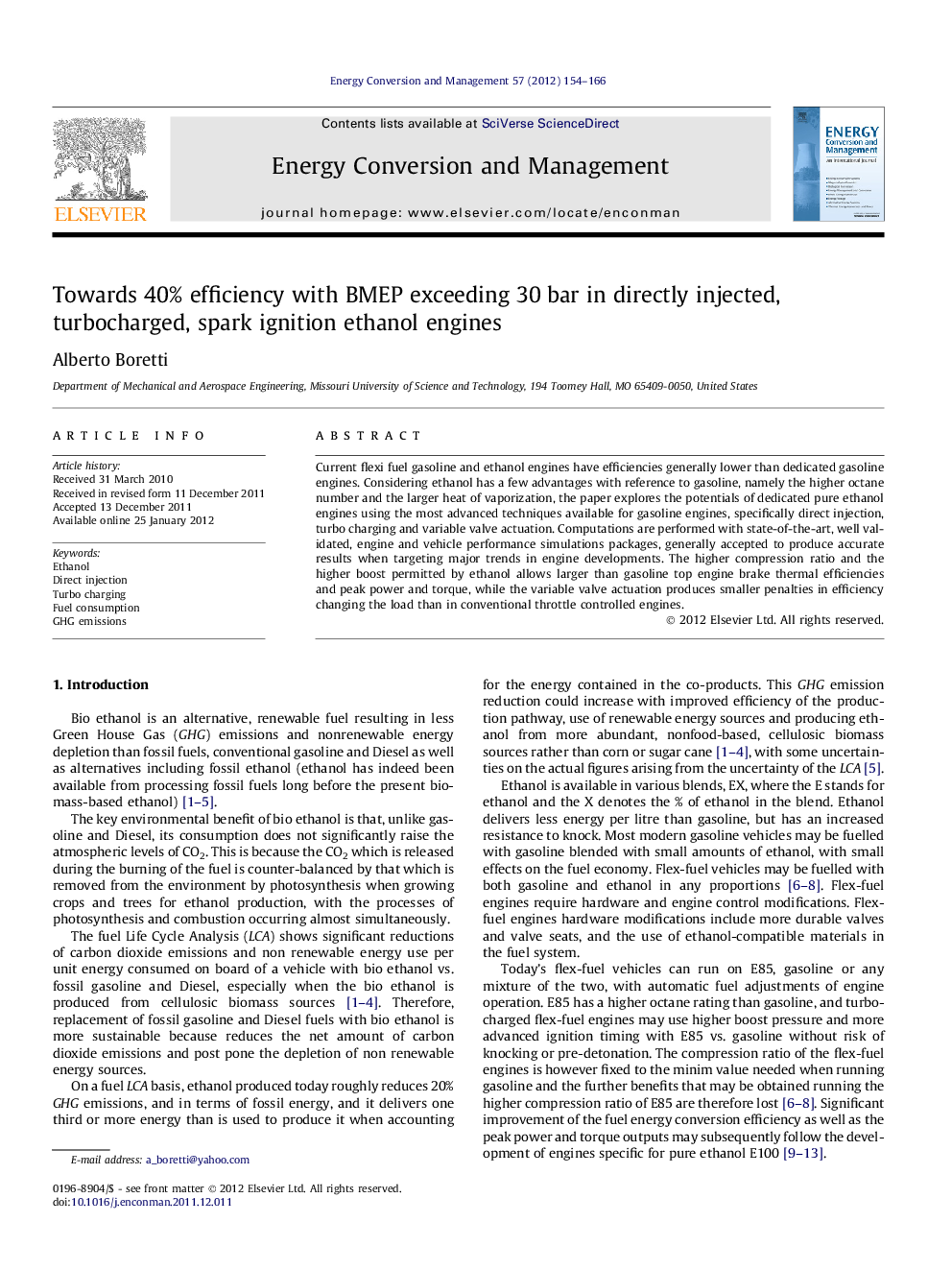| Article ID | Journal | Published Year | Pages | File Type |
|---|---|---|---|---|
| 761222 | Energy Conversion and Management | 2012 | 13 Pages |
Current flexi fuel gasoline and ethanol engines have efficiencies generally lower than dedicated gasoline engines. Considering ethanol has a few advantages with reference to gasoline, namely the higher octane number and the larger heat of vaporization, the paper explores the potentials of dedicated pure ethanol engines using the most advanced techniques available for gasoline engines, specifically direct injection, turbo charging and variable valve actuation. Computations are performed with state-of-the-art, well validated, engine and vehicle performance simulations packages, generally accepted to produce accurate results when targeting major trends in engine developments. The higher compression ratio and the higher boost permitted by ethanol allows larger than gasoline top engine brake thermal efficiencies and peak power and torque, while the variable valve actuation produces smaller penalties in efficiency changing the load than in conventional throttle controlled engines.
► The main advantages of ethanol vs. gasoline are higher knock resistance and heat of vaporization. ► Direct injection and turbo charging are the key features of high efficiency and high power density ethanol engines. ► Advanced ethanol engines are enablers of vehicle fuel energy economy similar to Diesel engines. ► Waste bio mass ethanol may cut the nonrenewable energy costs of fossil fuels passenger cars by almost 90%.
